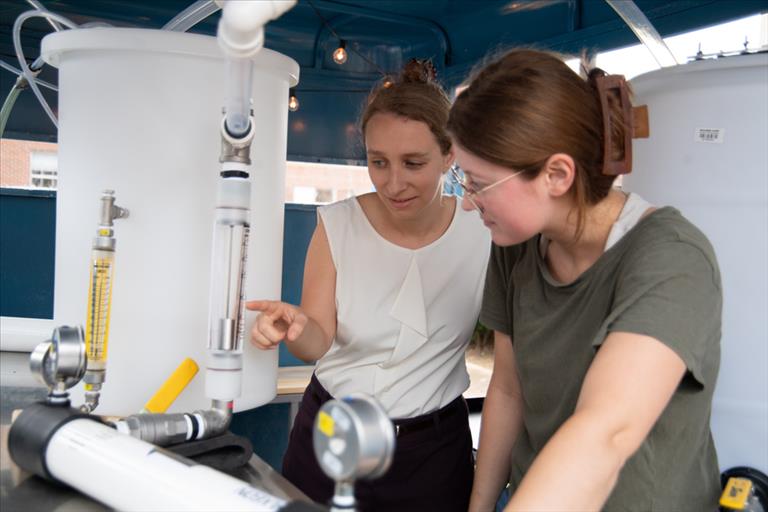Turning Water Byproducts into Valuable Resources: Tennessee Tech's Innovative Approach
Published Bernice on Wednesday, October 11, 2023 3:54 PM

In various industrial sectors such as manufacturing and power generation, water often emerges as a byproduct of essential processes. However, some of these processes introduce molecules into the water, rendering it unsuitable for direct return to the main water supply. At Tennessee Tech University, a team of students and faculty is pioneering an experimental approach to transform this "process water" from a potential hazardous waste into a source of valuable resources.
Laura Arias Chavez, an assistant professor of chemical engineering at Tennessee Tech, emphasizes the untapped potential within the materials present in process water, stating, "I would say all of the materials in the process water, if you could separate them out to perfect purity, would have useful roles in society." For instance, process water may contain ammonia, a crucial component in fertilizer production, offering the potential for resource recovery and reuse.
Alongside ammonia, the process water in question contains various hydrocarbons that, if left unaddressed, could pose risks to human health and the environment when discharged into natural water bodies or drinking water supplies. However, the separation and recovery of these molecules from process water could provide valuable resources, such as energy for diesel fuel or feedstocks for chemical processing plants.
The innovative aspect lies in how efficiently these materials can be isolated from process water. The objective is to shift from generating hazardous waste to reclamation, thus creating value from materials that would otherwise be discarded. This not only aligns with sustainability principles but also addresses the growing challenge of resource scarcity.
The initial large-scale tests of this process began in the fall semester, but the project's roots trace back several years when Laura Arias Chavez and other faculty members collaborated with Proton Power, a startup based in Lenoir City, Tennessee. Proton Power specializes in converting agricultural crops and bio-based materials into synthetic fuel or electricity using clean energy techniques. Since many of these crops can be cultivated in Tennessee, the prospect of significant local production of diesel fuel, electricity, and other energy products becomes viable.
The process water is a byproduct of Proton Power's reactors and poses unique challenges for treatment. Traditional methods involve complex wastewater treatment plants that require substantial energy and resources. Tennessee Tech's research team, led by Chavez, aims to develop a more cost-effective and sustainable solution to make resource recovery from process water a feasible option for businesses.
Chavez's work on this project began with small-scale experiments in 2015 and later expanded with the support of the National Science Foundation. The project involved undergraduate and graduate students who contributed to data collection and the design of full-scale plants. This real-world project has also inspired many graduating seniors to pursue careers in water and wastewater management.
Presently, a scaled-up pilot test is being conducted at Proton Power's facility, led by Chavez and supported by chemical engineering graduate student Catherine Murphy and undergraduate students. The team is monitoring the system around the clock, assessing water purity and energy consumption to guide the next steps.
Catherine Murphy highlights the value of hands-on experience in scaling up systems, stating, "Being able to fully construct it from start to finish, watch it run, and do all the minor fixes or major fixes – it’s been really helpful."
Sam Weaver, Ph.D., president of Proton Power, praises Tennessee Tech's contributions to the project, noting the outstanding progress in developing a cutting-edge technology to clean up water co-products. The collaboration showcases the potential for innovative approaches to address environmental and resource challenges in industrial processes.
Previous Article Promote Your School Next Article



